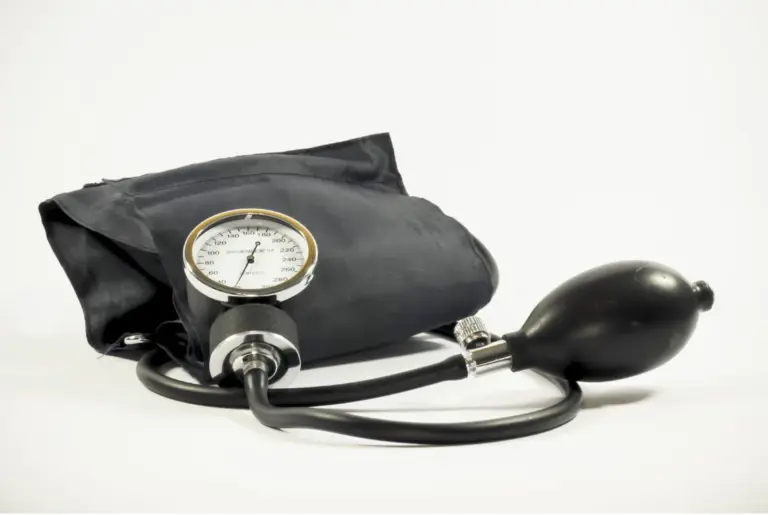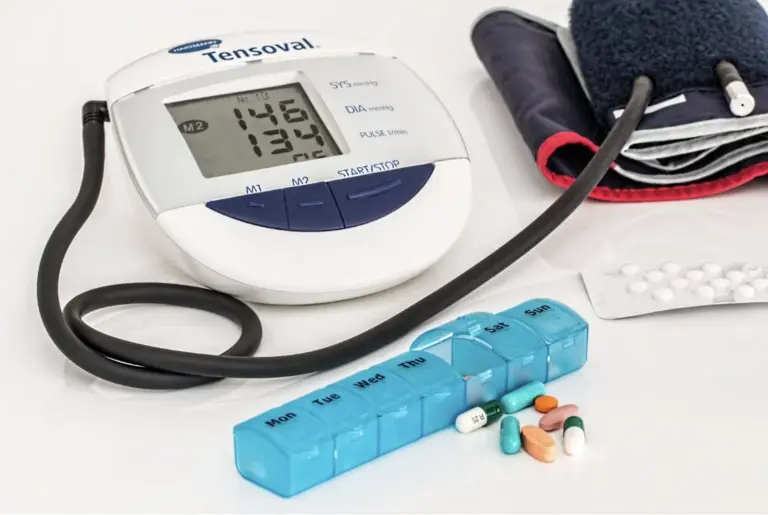What is Heart Disease?
Heart disease, also known as cardiovascular disease, refers to a group of conditions that affect the heart and blood vessels. It is a broad term that encompasses various types of heart diseases, including coronary artery disease, heart failure, arrhythmias, and valvular heart diseases.
Heart disease is a significant global health issue, contributing to a high number of illnesses and deaths. Several risk factors can increase the likelihood of developing heart disease, including high blood pressure, high cholesterol levels, smoking, diabetes, obesity, a family history of heart disease, and an unhealthy lifestyle. However, many forms of heart disease can be prevented or managed through lifestyle changes such as regular exercise, a balanced diet, maintaining a healthy weight, not smoking, and managing underlying health conditions.
Early detection and appropriate medical interventions are crucial in managing heart disease. Regular check-ups, screenings, and discussions with healthcare professionals can help identify risk factors and implement preventive measures.
Who gets heart disease?
As one of the leading causes of death, heart disease can occur in anyone but certain factors increase your risk such as age, gender, family history, blood pressure history, high cholesterol and obesity among others.
What are the types of heart disease?
Heart disease encompasses various types of conditions that affect the heart and its functioning. Some of the common types of heart disease include:
- Coronary Artery Disease (CAD): This is the most prevalent form of heart disease. It occurs when the coronary arteries, which supply oxygen-rich blood to the heart muscle, become narrowed or blocked due to the buildup of plaque. CAD can lead to chest pain (angina), heart attack, and other complications.
- Congenital Heart Defects: These are structural abnormalities in the heart that develop before birth. Congenital heart defects can affect the heart valves, walls, or blood vessels, causing disturbances in blood flow. The severity of these defects can vary widely, ranging from minor to life-threatening conditions.
- Arrhythmia: A heart arrhythmia refers to an irregular heartbeat or abnormal heart rhythm. It can manifest as a fast heartbeat (tachycardia), slow heartbeat (bradycardia), or irregular heartbeat. Arrhythmias can disrupt the heart’s ability to pump blood effectively and may lead to symptoms like palpitations, dizziness, or fainting.
- Dilated Cardiomyopathy: This condition is characterized by the enlargement and weakening of the heart chambers. As the heart muscle becomes stretched and weakened, it struggles to pump blood efficiently throughout the body. Dilated cardiomyopathy can lead to heart failure and other complications.
- Myocardial Infarction (Heart Attack): A heart attack occurs when there is a sudden blockage in the coronary arteries, cutting off the blood supply to a section of the heart muscle. This can result in permanent damage to the affected area of the heart if not treated promptly.
- Hypertrophic Cardiomyopathy: This is a genetic condition characterized by the thickening of the heart muscle, making it harder for the heart to pump blood efficiently. Hypertrophic cardiomyopathy can cause symptoms such as chest pain, palpitations, and shortness of breath, and it can further lead to arrhythmias or heart failure
- Heart Failure: Heart failure happens when the heart cannot pump enough blood to meet the body’s demands. It can occur gradually over time or as a result of conditions like coronary artery disease, high blood pressure, or heart muscle damage.
What are the symptoms of heart disease?
Symptoms of heart disease can vary depending on the specific type of heart condition an individual has. It is crucial to be aware of these symptoms and seek medical attention if they arise. Here are some commonly associated heart disease symptoms:
- Chest pain or discomfort: This is the most prominent symptom of heart disease. The pain may feel like pressure, squeezing, fullness, or an ache in the chest. It can also radiate to the shoulders, arms, neck, jaw, or back.
- Shortness of breath: Difficulty breathing or feeling breathless, especially during physical exertion or even at rest, can be a sign of heart disease. It may be accompanied by chest discomfort or occur independently.
- Fatigue: Persistent fatigue or feeling excessively tired, even after adequate rest, can be an indication of heart disease. This fatigue may limit one’s ability to engage in regular activities.
- Palpitations: Sensations of a racing, fluttering, or irregular heartbeat may be experienced as palpitations. This can cause uneasiness or a feeling of the heart pounding in the chest.
- Nausea or vomiting: In some cases, heart disease, particularly during a heart attack, can cause nausea or vomiting. These symptoms may be accompanied by other signs of heart distress.
- Lightheadedness or dizziness: Feeling lightheaded, dizzy, or faint can occur with certain heart conditions, including a heart attack or heart failure. These symptoms may arise due to inadequate blood flow to the brain.
- Swelling: Heart disease can cause fluid retention, resulting in swelling in the legs, ankles, feet, or abdomen. This swelling is known as edema and can be a sign of heart failure.
- Rapid weight gain: Sudden and unexplained weight gain, usually accompanied by swelling, can be indicative of fluid retention due to heart disease.
- Cold sweats: Unexplained cold sweats, especially when experienced along with other heart-related symptoms, should not be ignored.
- Reduced exercise tolerance: If you notice a decline in your ability to engage in physical activities or experience increased fatigue during exercise, it may be a sign of underlying heart disease.
What are the causes of heart disease?
Heart disease can be caused by various factors, each contributing to the development of this condition. Here are some of the primary heart disease causes:
- High blood pressure: Elevated blood pressure puts strain on the arteries, making it more challenging for blood to flow efficiently to the heart.
- High cholesterol: Increased levels of LDL (low-density lipoprotein) cholesterol, commonly referred to as “bad” cholesterol, can accumulate in the arteries, leading to their narrowing and restricting blood flow.
- Diabetes: Diabetes can harm the arteries and impede proper blood flow to the heart, increasing the risk of heart disease.
- Obesity: Being overweight or obese escalates the chances of developing high blood pressure, high cholesterol, and diabetes, all of which are significant risk factors for heart disease.
- Physical inactivity: Leading a sedentary lifestyle increases the risk of high blood pressure, high cholesterol, and obesity, all of which contribute to the development of heart disease.
- Smoking: Smoking damages the arteries and heightens the likelihood of blood clot formation, significantly raising the risk of heart disease.
- Family history: Individuals with a family history of heart disease are at a higher risk of developing the condition themselves, emphasizing the influence of genetic factors.
- Certain medications: Some medications, such as steroids, may elevate the risk of heart disease. It is essential to discuss potential side effects and risks with a healthcare professional when prescribed such medications.
What are the risk factors for heart disease?
Several risk factors contribute to the development of heart disease. These factors can be categorized into two main types: modifiable and non-modifiable. Here are the risk factors associated with heart disease:
- Non-modifiable Factors:
- Age
- Gender
- Family history
- Modifiable Risk Factors:
- High blood pressure
- High cholesterol levels
- Smoking
- Diabetes
- Obesity and overweight
- Unhealthy diet
- Physical inactivity
- Excessive alcohol consumption
- Stress
- Sleep apnea
How can you prevent heart disease?
There are many things you can do to reduce your risk of developing heart disease, including:
- Eat a healthy diet: A healthy hypertension diet includes plenty of fruits, vegetables, and whole grains. It is also important to limit your intake of saturated fat, trans fat, cholesterol, and sodium.
- Get regular exercise: Exercise helps to keep your heart healthy and strong. Aim for at least 30 minutes of moderate-intensity exercise most days of the week.
- Maintain a healthy weight: Being overweight or obese increases your risk of heart disease. Aim for a healthy weight for your height and body type.
- Quit smoking: Smoking is a major risk factor for heart disease. If you smoke, quitting is the best thing you can do for your heart health.
- Limit alcohol intake: Drinking too much alcohol can increase your risk of heart disease. Limiting your alcohol intake can help you maintain better control over your alcohol consumption and support your overall well-being
- Manage your blood pressure, cholesterol, and blood sugar levels: If you have high blood pressure, high cholesterol, or diabetes, it is important to work with your doctor to manage these conditions. Controlling these conditions can help to reduce your risk of heart disease.
In a Nutshell
Taking proactive steps to understand and manage heart disease is crucial for maintaining optimal health. By familiarizing yourself with the risk factors, symptoms, and causes of heart disease, you can make informed decisions and implement preventive measures to protect your heart. Remember, you don’t have to face this journey alone.
If you have any concerns or need expert guidance, it is highly recommended to consult with a qualified healthcare professional. They can provide personalized advice, conduct necessary screenings, and help create a tailored plan to support your heart health.
To find a trusted physician who specializes in cardiovascular health, you can visit our Find a Physician webpage. Take the next step towards prioritizing your heart health by connecting with a knowledgeable healthcare provider.
Afterall a healthy heart leads to a healthier life!
Disclaimer
The information contained in this article is to educate, spread awareness in relation to hypertension and other diseases to the public at large. The contents of this article are created and developed by BPinControl.in through its authors, which has necessary, authorisations, license, approvals, permits etc to allow usage of this articles on The Website. The views and opinions expressed in this article are views, opinions of the respective authors and are independently endorsed by doctors. Although great care has been taken in compiling and checking the information in this article, The Website shall not be responsible, or in any way liable for any errors, omissions or inaccuracies in this article whether arising from negligence or otherwise, or for any consequences arising therefrom. The content of this article is not a substitute for any medical advice. The Website shall not be held responsible or liable for any consequence arising out of reliance on the information provided in the article.




